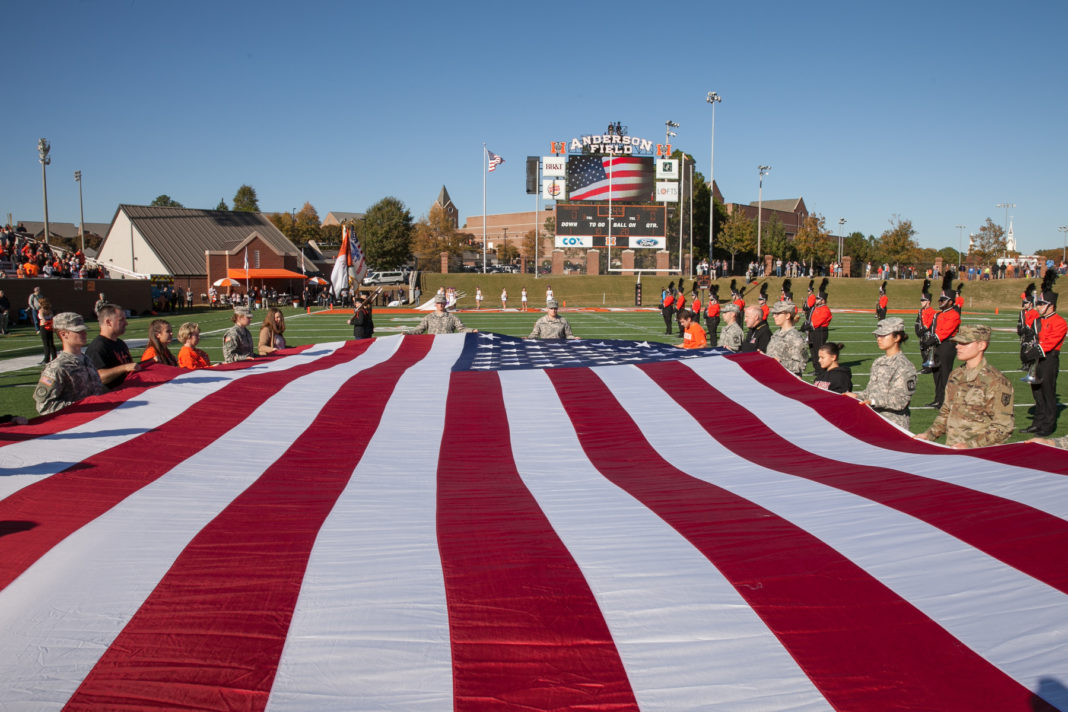With the recent withdrawal of American forces ending the 20-year war in Afghanistan, thousands of troops are now adjusting to life back home.

While the majority of veterans come home and reintegrate without any issues, for combat veterans, the transition can be challenging. This Veterans Day, Dr. David Lane, professor of counseling in the College of Professional Advancement at Mercer University, provides insight on the difficulties they face, as well as how civilians can support them.
Because of their unique experiences, combat veterans are at a greater risk of mental health issues than other veterans. The two leading problems combat veterans face are post-traumatic stress disorder, or PTSD, and moral injury, Dr. Lane said.
PTSD and moral injury share similar symptoms but have different causes.
PTSD is based on fear, arising from situations in which troops think they are going to die or see someone else die. Moral injury arises out of a betrayal of moral principles, Dr. Lane said.
Moral injury may occur when troops are asked to follow a higher authority’s order that betrays their moral code. For example, soldiers are ordered to burn a village when they know women and children will die. Or drone pilots are ordered to launch an airstrike on a village where they see children playing outside.
“Your moral compass says you were betrayed by the higher command, but then you did it anyway. You’ve allowed yourself to do that,” Dr. Lane said. “And so, then you’ve got the feeling of betrayal tied to your own broken moral system.
“It’s earth-shattering to lots of people.”
Combat veterans also may suffer from anxiety and depression. Attempts to self-medicate these feelings may lead to addiction, and physical injuries also may lead to substance abuse problems, he said.
Veterans also may struggle with family issues when they return home.
“Nobody understands what they’ve experienced,” Dr. Lane said. “They come home, and everybody’s treating you just like the person that left home a year ago, but you’re not that person anymore.”
In addition, reintegrating into a family that has been operating without the veteran for the past year or more can be difficult.
A parent who was at home alone with children may not want to change the way they’ve been running the household because they’ve gotten into a groove. On the flip side, they might want to hand off responsibility to the returning family member before the veteran is ready, Dr. Lane said.
“When a person comes back, they need some decompression time,” he said.
Even the mildest deployment typically involves working long hours for seven days a week.
“You’ve been running as fast as you can run for the last 365 days, so your brain and your body are on this high-speed treadmill, and you get home, and you have to unwind. You have to decompress a little bit,” Dr. Lane said. “Does the family allow you space to do that? If they do without a lot of expectations, then reintegration can be pretty successful. If they don’t … problems can come out of that.”
There are ways friends and family can support veterans. And the biggest one is just to listen.
“Start with something general like, ‘Tell me about your time in the service,’” Dr. Lane said.
Veterans often complain that when they return home, people ask them whether they were in combat and whether they killed anybody. But that was probably the worst day of their life, and they don’t want to talk about that, he said.
“Just ask them to tell their story the way that they want to tell the story,” he said. “Follow up and be interested in it. Be genuine in your interests.”
In terms of the veterans who recently returned from Afghanistan, let them lead the conversation. Many feel torn between feelings of guilt and betrayal that the Taliban has taken over and the joy and pleasure of being home.
As a listener, “I want them to be able to tell their story. I want them to be able to say whatever is on their mind, and I just need to be able to suspend my frame of judgement one way or the other” about the withdrawal, he said.
“We owe veterans a tremendous debt,” Dr. Lane said. “Now with the all-volunteer military, it’s less than 1% of the population that ever serves in the military, and so those people who are willing to step up, take on that responsibility of the other 99%, we owe them a tremendous debt of gratitude because they’re willing to go and protect us.”










